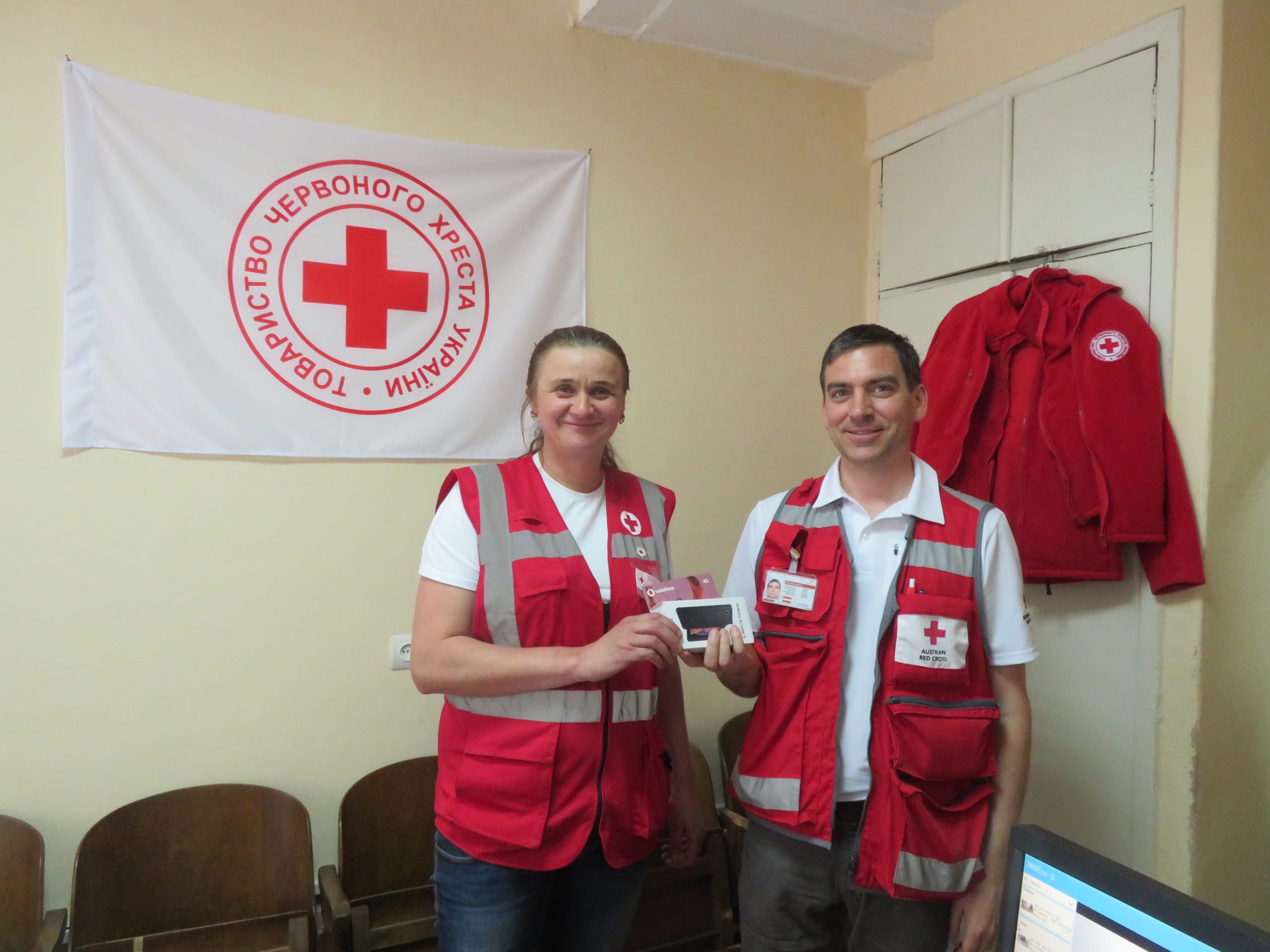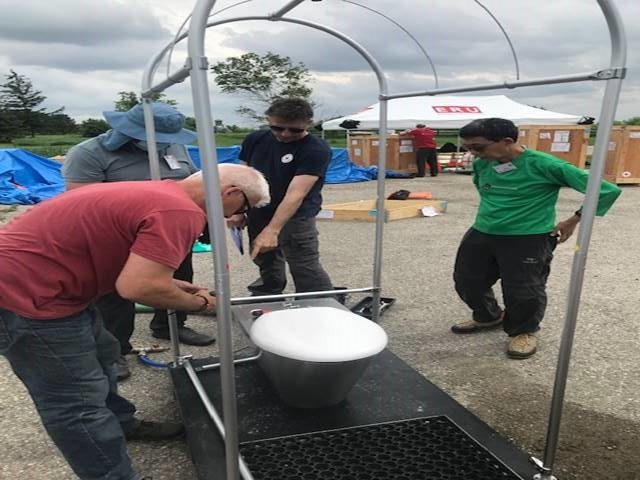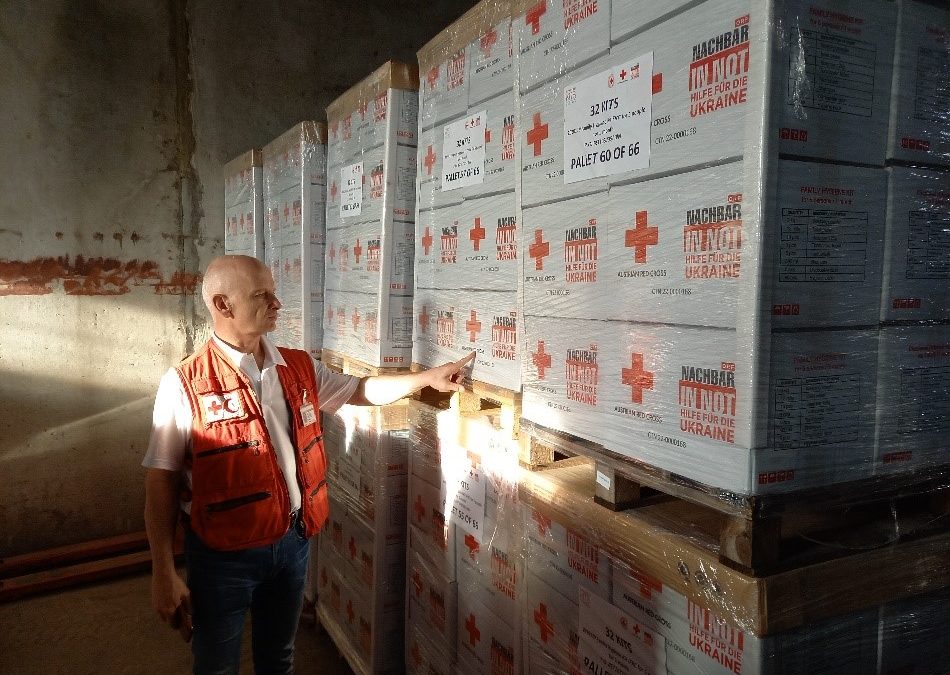1st rotation assessments & impressive solidarity
My name is Imre Siska. I work for the ARC HQ, in the Health and Social Services department in Vienna. I was deployed from the 19.03.2022 for 4 weeks with my colleague Andreas Hattinger to Ushhorod city/Transcarpathia Oblast.
I am a WASH delegate with CAE and PGI experience.
The main challenge in Transcarpathia (oblast with 1 million inhabitants) was to provide approximately 400.000 IDPs with the items of everyday life, because many of them had to flee with only one luggage.
Because we were the first team, our main task was to assess the situation on site:
- What is the local RC is doing? What are their capacities? How can we help and support them.
- What are local authorities doing?
- Which other organisations are working in the oblast and what are they doing.
- What will be the main task of the ARC in Ushhorod/Transcarpathia?
Of course, we also had to set immediate measures, because there were many people in urgent need. In this respect, we had to rely on the colleagues of the Ukrainian RC. The main goal was to support 5.500 households with food items and hygiene kits. The parcels were distributed evenly in all the 10 “rayons” in Transcarpathia. In the image above you can see my colleague Andreas Hattinger in the warehouse after the arrival of the hygiene kits.
The plan was to assist the people later with cash or vouchers, which is much faster and simpler than distributing food parcels. In Transcarpathia the shops are full and most of the items are easily available.
Our target group for the distribution were people living in temporary shelters and with host families. As classes were shifted online, the IDPs were accommodated in Kindergarden/school/university dormitories after they were registered. This group – mainly women and children – were heavily relying on support.
The solidarity of the local population was impressive. I have never experienced something similar before in my life. I wish that we don’t need a war to generate a social cohesion like this.

Support in Ushhorod
My name is Dominic Janisch and I am a volunteer at AutRC Lower Austria Branch. I was deployed to Ushhorod as a team leader for the AutRC delegation there. Mainly I supported the branch with hardware such as mobile phones, lead the team members in preparing health and CVA programs as well as WASH centres. We also assessed 8 of the 11 Rayon Branches for their capacities and needs to help IDPs and host the population. Additionally I was responsible for the local administration of accommodation, security and travel of the team members and visitors.
The achievements and highlights during my time there were:
- the 600 km round trip through Transcarpathia with interviews of the 8 Rayon Branch teamleaders.
- We conducted a WASH introduction training for 13 Ukraine RC volunteers in Ushhorod which was another highlight for us.
- The collaboration with Ukraine RC in Transcarpathia as well as the IFRC and Austrian Embassy was also very positive.
The main achievements for me were that the team was safe, healthy and in good spirits.

WASH support for the Field hospitals
Canadian Red Cross approached the WASH team to ask if we were interested in supporting them in a reconfiguration of their ERU equipment. Canadian Red Cross have been deploying all different kinds of health ERU including field hospitals. They were looking for a new water treatment system and wanted to see what partner National Societies are using for their health ERUs. In the redesign they wanted to have a system that was adapted to the different ERUs’ (small field ambulance up to field hospital) requirements, easy to use and cheaper than their current system. We have worked through the relevant standards and interviewed representatives from partner National Societies that have health ERUs. After that we wrote and presented our recommendation for a new system. Next to that Florian Haas did take part in their ERU training to see how they train their field technicians for an upcoming mission.
Next steps to the process will be to finalize procurement for the equipment as well as support with SOPs and training guidelines. In a second stage of the project we will also review the Sanitation side of the health ERU. The plan is to come up with a second set of recommendations for the sanitation side including provisions for fecal sludge management as well as toilets.
We also hope that our cooperation with Canadian Red Cross will continue over the coming years to include joint trainings and exercises.
